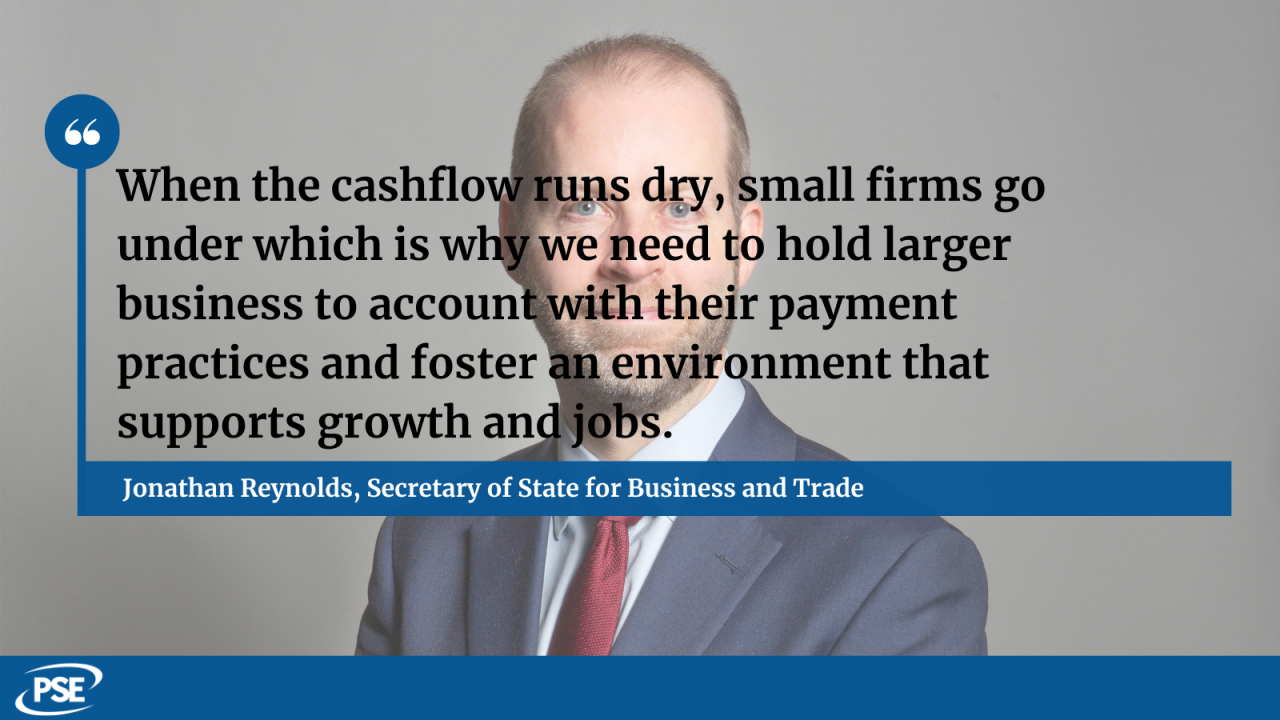A new package of measures will support small businesses and the self-employed by tackling the “scourge” of late payments, the government has announced today.
It is thought that late payments cost small businesses around £22k a year on average and contribute to approximately 50,000 business closures a year.
The Department for Business and Trade will consult on new legislation in the coming weeks which will force larger organisations to be held accountable, with payment records in annual reports set to be mandatory.
The government also intends to intensify the enforcement of the current late payment performance reporting regulations, which require large firms to report twice a year to the government.
Growing the economy
Each quarter, more than half (52%) of all small UK businesses experience late payments, meaning around 2.6 million organisations face this issue – the Federation of Small Businesses believes it to be one of the biggest problems facing SMEs.
It is thought that initiating this late payment clamp down will unlock growth for as many as 5.5 million small businesses, in turn allowing them to invest in:
- Employees
- Wages
- Exports

The government is also planning on launching a new Fair Payment Code, which will replace the old Prompt Payment Code. Businesses will have to prove they have met good payment standards, before being awarded either a bronze, silver or gold status. The government hopes the code will spotlight the businesses “doing the right thing” by suppliers and small businesses.
Paving the way for real change
“We know how important it is for business owners to have the peace of mind and certainty around their cashflow to keep their businesses alive,” said prime minister Sir Keir Starmer.
He added: “Late payments cost businesses tens of thousands of pounds and is one of the biggest reasons businesses collapse. After years of delay, we’re bringing forward measures that small businesses have long been calling for to tackle late payments once and for all.”
Business secretary Jonathan Reynolds has said the government is determined to “level the playing field” for small businesses. “When the cashflow runs dry, small firms go under which is why we need to hold larger business to account with their payment practices and foster an environment that supports growth and jobs,” he said.
Gareth Thomas, meanwhile, the small business minister, said: “Small businesses deserve to be paid on time, it’s as simple as that. I’m optimistic that today’s first big step will help pave the way for real change that supports SMEs to thrive and help to grow our economy.”
Policy chair at the FSB, Tina McKenzie, added: “This is what real change looks like. Listening to small firms and prioritising action to tear down each and every barrier to growth.”
She concluded that the news was a “huge confidence boost” for small firms and serves as a statement of intent that the government will stand up for small businesses.
Image credit: iStock



















